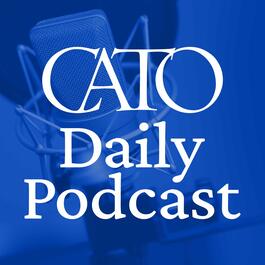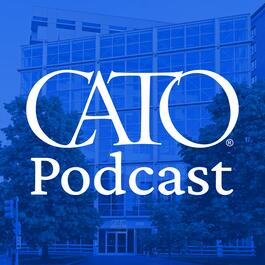
Cato Podcast
Each week on Cato Podcast, leading scholars and policymakers from the Cato Institute delve into the big ideas shaping our world: individual liberty, limited government, free markets, and peace. Whether unpacking current events, debating civil liberties, exploring technological innovation, or tracing the history of classical liberal thought, we promise insightful analysis grounded in rigorous research and Cato’s signature libertarian perspective. Hosted on Acast. See acast.com/privacy for more information.
Show episodes
Is your Thanksgiving dinner more or less affordable this year? Human Progress's Marian Tupy joins the Cato Institute's Ryan Bourne to discuss the political battle over affordability, the long-term costs of high inflation, and how time-prices show most goods becoming more abundant over time. Plus, the pair discuss human
Cato's Chad Davis and Travis Fisher examine the gulf between symbolic climate pledges and the real-world complexities of energy use — from EV carbon costs to fossil-fueled resilience against natural disasters. They argue that the “climate homicide” narrative misreads the data, and that abundant, affordable energy remai
FEMA was meant to help only when disasters exceeded state capacity. Yet today it functions primarily as a national subsidy machine, encouraging development in floodplains, bailing out wealthy coastal states, and shifting costs onto taxpayers far from the danger zones. The Cato Institute's Dominik Lett and Chris Edwards
Romina Boccia, Michael F. Cannon, and Adam Michel break down the 43-day government shutdown driven by demands to extend temporary Obamacare subsidies for upper-income households earning well into six figures. The trio examines how the stalemate exposed deeper structural problems: runaway entitlement growth, perverse st
The Cato Institute's Justin Logan and Brandan P. Buck unpack the Trump administration’s shifting justifications for military action in Venezuela, from fentanyl and cocaine interdiction to Monroe Doctrine revivalism. They explore the legal and strategic risks of invoking war powers under dubious pretenses, warning that
Can a president tax Americans at will under the guise of a national emergency? The Cato Institute's Scott Lincicome and Brent Skorup dissect the high-stakes Supreme Court battle over Trump’s “fentanyl tariffs,” the broadest assertion of trade power in modern U.S. history. They explore how the case could reshape executi






